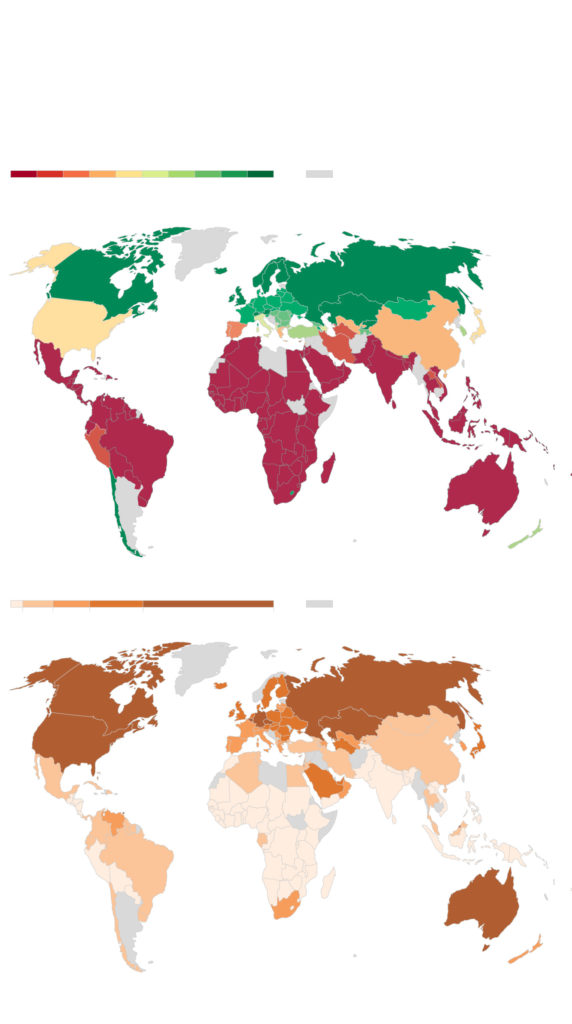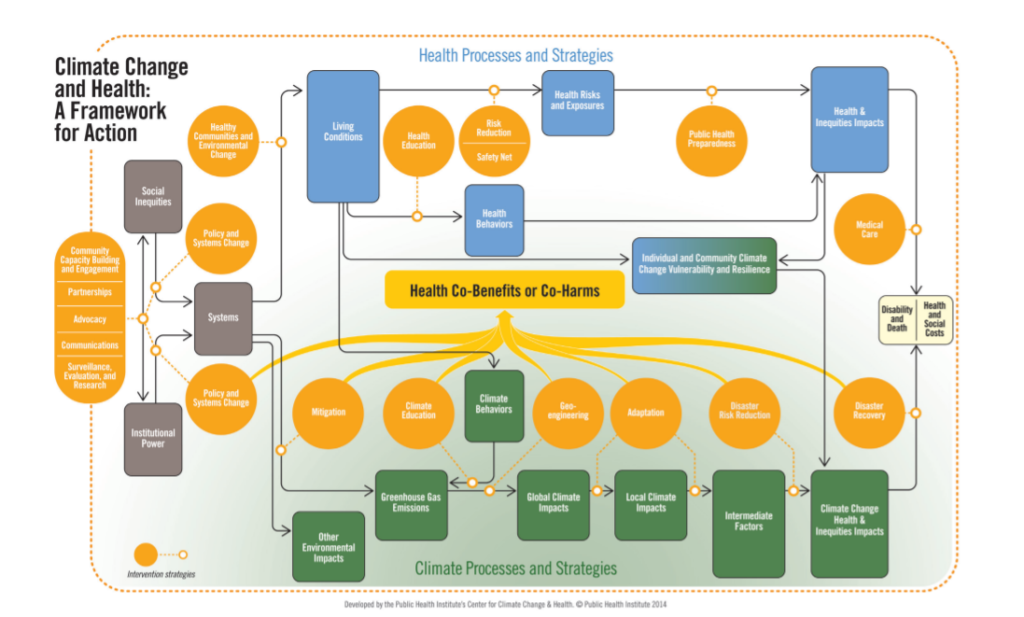It’s so good to be a Human being in this covetous World but being human does not make us less worried about every other thing.
When a part of the World is still engulfed in dealing with the Pandemic, the other part is concerned with the revival and recovery from its impacts. Our Countries and their Central Banks are trying to resuscitate their economies from comatose, while its residents are trying to normalize their lives in the wake of secondary wave of infections.
But are we sure, we are doing it right? When we are treading such a difficult recovery path, we are taking it all with us or are we leaving something significant behind? Maybe, Our Humanness.
We inherited this Earth on equal footing. There was a time when we extracted it’s resources in equitable manner, throughout the fraternity but that, was some brief time.
A few outgrew their influence on the others who could be easily subdued. And there came a time when major chunk of Humanity could be exploited to fulfill the greed of a few. Industrial revolution in the Eighteenth century brought the light of liberty with it, emancipating Humanity from the clutches of misery and hunger.
It has been a human character, whatsoever, to make even good things worse. Soon, Industrial revolution became a tool to colonize, enslave and capture fellow weak humans.
At this juncture in 2021, we dream a planet where “All” in our future generations, can live amicably, sharing Earth’s resources while being responsible towards its health.
But do we really think, all of us can cross this biased era? Alas, a few of us may not be able to make it and a Darwin within us, will justify the cause with “survival of the fittest”.
UNSG Antonio Guterres rightly said as he delivered the Nelson Mandela Annual Lecture: “Within countries, illness and death from Covid-19 has been higher among people and communities that contend with poverty, unfavorable living and working conditions, discrimination and social exclusion“.
“COVID-19 has been likened to an X-ray, revealing fractures in the fragile skeleton of the societies we have built”.
“It is exposing fallacies and falsehoods everywhere- The lie that free markets can deliver health care for all, the fiction that unpaid care work is not work, the delusion that we live in a post-racist world, the myth that we are all in the same boat.”
And here, we ask ourselves: Would we expect Climate Justice without the social justice?
2020 may have snatched numerous livelihoods but it saw the biggest wealth increase in the last decade. The world has added 607 new billionaires or an average of three billionaires every two days, while India alone could add 55 new billionaires or one billionaire per week.
Our country, in particular, could never find a top spot in hosting World’s greatest Inventions or Discoveries but was quick to emerge on the third spot in number of billionaires with about 177 billionaires living in India.
According to Oxfam report, the 1,000 richest people on the planet have recouped their COVID-19 losses within just nine months, but it could take more than a decade for the world’s poorest to recover from the economic impacts of the pandemic. “The Inequality Virus” found much relevance and resonance in the Davos forum.
Progressive taxes do try to assuage this gap in India but not to the extent it is required. While a faith-stricken common man may feel obliged to part his earning in the name of charity or helping his fellow countrymen. Not every Billionaire is a philanthropist like Bill-Melinda Gates, Ratan Tata, Azim Premji or Sudha Murthy.
Common but differentiated responsibilities amongst different developed as well as developing Nations may seem relevant but its also important to implement such measures to empower the poorest within a nation.
According to Amnesty International Report 2020/21: The State of the World’s Human Rights, women, LGBTQI community, sex workers, health workers and refugees or the most marginalized ones, have faced the severe brunt of cruel Pandemic.
Recognizing the connections between gender and climate change in the COVID-19 context, UN has started EmPower project and UN Women to help land women’s access to green jobs and climate-resilient livelihoods.
Recently, World Economic Forum has released the Global Gender Gap Report 2021, India along with several other countries has fared worse in this year’s rankings compared to last year’s.
This is indicative of the fact that Climate change and the resultant pandemics can have a hard hit on Women. Local environmentalists estimate that 70 per cent of the poor, who are far more vulnerable to environmental damage, are women.
Another report by PNAS suggests the same.
They were quick to point out the inabilities of key global bodies including United Nations or WHO in meeting the human rights challenges of the past year along with lauding the inclusive struggles such as Black Lives Matter or #EndSARS protests in Nigeria or the virtual climate strikes, in raising enough voice against such utter disregard of regressive policies worldwide.
Links between Climate change and Inequality:
The interconnections between inequality, the Biosphere, and global sustainability are indispensable because various distributional, recognitional and procedural inequities have great roles to impact our Environment in the long run.
Even according to the Human Development Index 2019 (HDI), the report released annually by United Nations Development Programme(UNDP), there is a dire need to address inequality and climate crisis together, hand-in-hand.
With rapid Climate change, Income inequality has been found to be about 25 per cent higher, than it should have been without climate change.
Vice-versa, it mentions that Carbon emissions tend to get higher when income is more concentrated at the top. And as this concentration of income coincides with economic power, it opposes further action on climate change.
More convincingly, the bottom 50 per cent carbon emitters of the world mostly constitutes developing countries led by India.
A climate Scientist at Stanford University critically says, “The countries that are most responsible for global warming are different from the countries that are bearing the brunt of global warming.”

For the above purpose, the developed Nations undertook the pledges to help the lesser countries with a $100 billion per year, to develop without emissions and adapt to Climate change without any other protective gear but this has been a point of contention ever since.
The report comprehensively studies that since 2000, the Tropical countries have become at least 5 per cent poorer due to global warming than they otherwise would be.
Consequently, most of the world’s poorer countries are in the tropics with increased vulnerabilities and been left to be the first victims of Climate change, rising seas, warming oceans, dampened agricultural productivities and all other sorts of insecurities.
This triggers them to fight for the limited resources, adopting extremely rigid outlooks, further negating the common cause of Environmental conservation. Inequality erodes social cohesion and undermines individual willingness to engage in collective action.

A greater inequality leads to low investment, it can cause excessive pressure and degradation of natural capital, which — simply put — is the environment. This results in a downward spiral of incomes declining even further and increasing degradation.
Any policy that ignores such a collusion between nature and culture is certainly not the right one for a diverse country like India. Lack of access to basic resources, like fresh water, air to breathe, and food, can re-establish poverty and will only exacerbate the problem of inequality.
The World Economic and Social Survey 2016: Climate Change Resilience—an Opportunity for Reducing Inequalities (#WESS2016), found that governments can play a significant role in reducing the risks of climate change to vulnerable populations.
Through transformative policies, the report shows that governments could address the root causes of inequalities and build climate change resilience.
According to the Water Project, children in 100 million Indian households lack water and one out of every two of these, are malnourished.
India and Inequality:
Economic Survey of India 2018 predictively warned that rising temperatures and poor rains may threaten farmers’ incomes.
Arvind Subramanian, the then chief economic advisor, estimated that even a one-degree Celsius rise in temperature in a year could lower farmer incomes by about 6% in the Kharif and Rabi seasons, in unirrigated districts. This could denigrate the efforts to stabilize National food security altogether.
Affordability to sustenance can be sourced from two places —
- The cost of using renewable energy and
2. the income of the household. India is apt in curbing the first but the inherent Income inequality is going from bad to worse.
Sustainability for the Governments:
Reducing inequalities may increase trust within societies, according to the State of the Planet report. This trust is anyhow integral for the governments to make long-term decisions and stay relevant to their citizenry.
Inequality has always been within us but is not inevitable. It’s a policy choice after all. Governments around the world can seize every available opportunity to build more equal, more inclusive economies, ending poverty and protecting the planet for a better future.
All we need in the end is to reset and reboot our choices and inherited systems to build a world grounded in equality, human rights and humanity because Leadership in 2020 did not come from power, privilege or profiteers. Rather, It came from the countless people marching to demand change.
While the billionaires across the World can plan big: to reach Mars and Moon, build resorts under the ocean, buy a few billion stakes here and there. It may excite or attract us more anyday.
But it is the sadness and hopelessness amongst people that can be more relevant: Nigerians struggling for a meal, people in Haiti taking refuge from frequent and more intense Hurricanes and floods, People of Yemen, Afghanistan, Syria getting killed and ravaged by constant wars within with no ambient medical supplies or food.

Even the Arctic is under afflictions of Climate change. Or the Indigenous communities struggling with their rights on forest land. Autumn Peltier is one such driving force for protection of water in Indigenous Communities.
India has no different story to tell; growing Covid infections and an abrupt Nationwide lockdown caused the Indian informal sector workers to travel Hundreds of Kilometers barefooted, with hunger and a clouded future, back to their homes as they could not sustain without jobs in an alien city. Such migrations may be more relevant in future.
These stories influence our present and future. They may drive us to be pessimistic on our inabilities to save Human lives but at the same time, these may drive us to be out of our callous shells. They help unravel our Humanness but we tend to forget these as soon as everything normalizes, unknowing the fact that it all starts with suffering again.
Inequality is prevalent in every pore of the damages of climate change. Did these people choose their own destinies or we led them to it with our insensitivities? It’s that simple: To get an equitable response to climate crisis, we need to provide an equal footing.
We are all connected. We are likely to feel climate change at some point, if we do not act. Now.
More references:
https://www.oxfam.org/en/india-extreme-inequality-numbers
https://inequality.stanford.edu/sites/default/files/media/_media/working_papers/laurent_inequality-pollution.pdf




